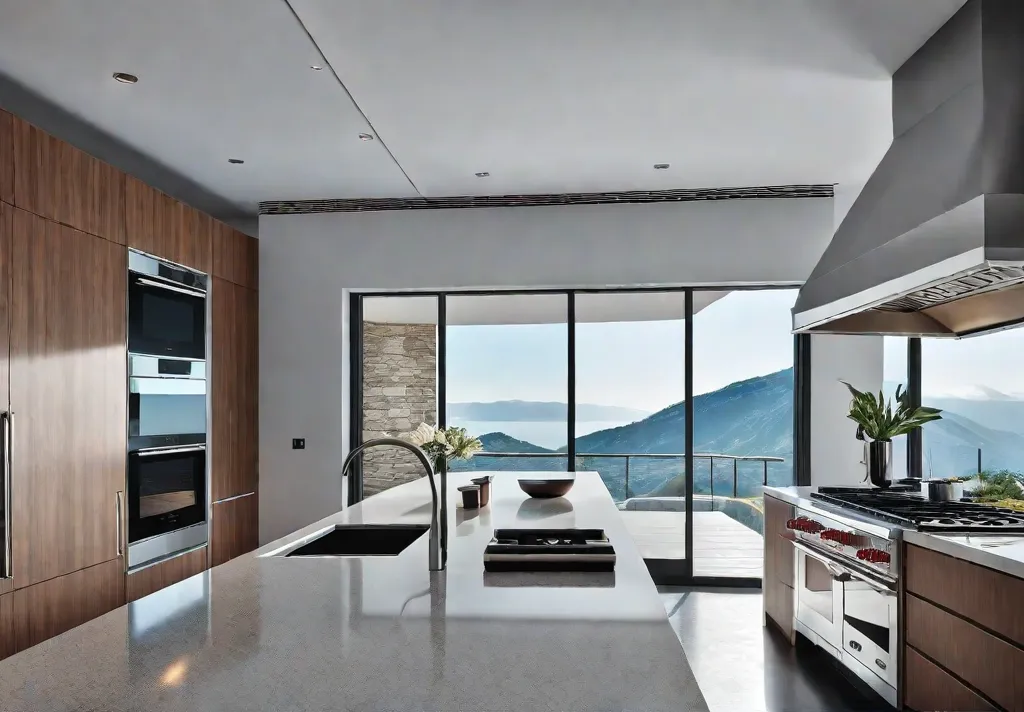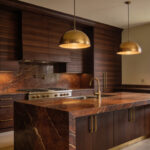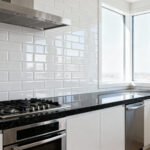Imagine a kitchen where your appliances can practically read your mind. A space where your fridge automatically orders your favorite snacks when you’re running low, and your oven knows just the right temperature and time to cook your signature roast to perfection. Welcome to the world of smart kitchens – the future of culinary convenience has arrived, transforming how we interact with our cooking spaces.
As a home decorator and design blogger, I’ve seen how smart kitchen technologies redefine the modern kitchen. These intelligent, connected devices are not only making our lives easier, but they’re also enhancing the overall aesthetic and functionality of our cooking environments. Whether you’re a seasoned home chef or a novice in the kitchen, smart kitchens have something to offer everyone.
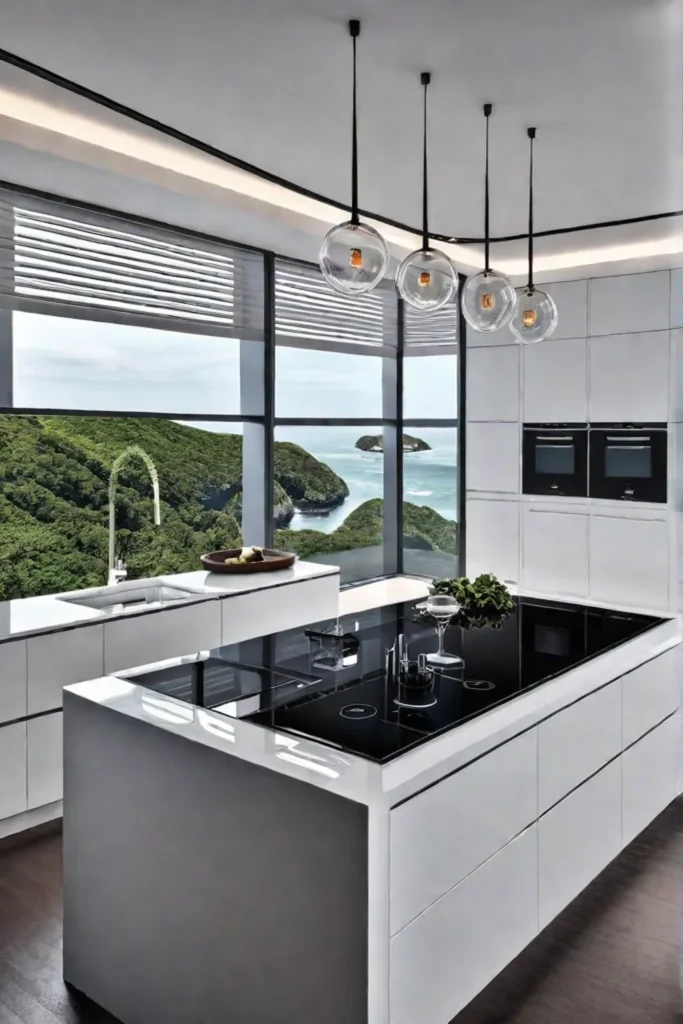
In this article, we’ll explore the exciting world of smart kitchens and how the integration of cutting-edge technology can create a more efficient, convenient, and connected home. From automated task scheduling to personalized cooking experiences, we’ll dive into these innovative kitchen solutions’ various features and benefits. So, upgrade your culinary game and transform your home into a smart kitchen oasis.
The Rise of Smart Kitchens
Smart kitchens are the epitome of modern convenience, seamlessly blending technology and cooking to streamline daily routines. These intelligent spaces are a far cry from the traditional kitchens of the past, where appliances were purely functional and could not communicate with one another.
Today, smart kitchen appliances are taking center stage, offering various features that make our lives easier. Imagine a refrigerator that can track your grocery inventory and suggest recipes based on what’s inside – no more last-minute dashes to the store or wasted food. Or picture a voice-controlled oven that can preheat and adjust temperature settings with a simple command, freeing up your hands for other tasks.
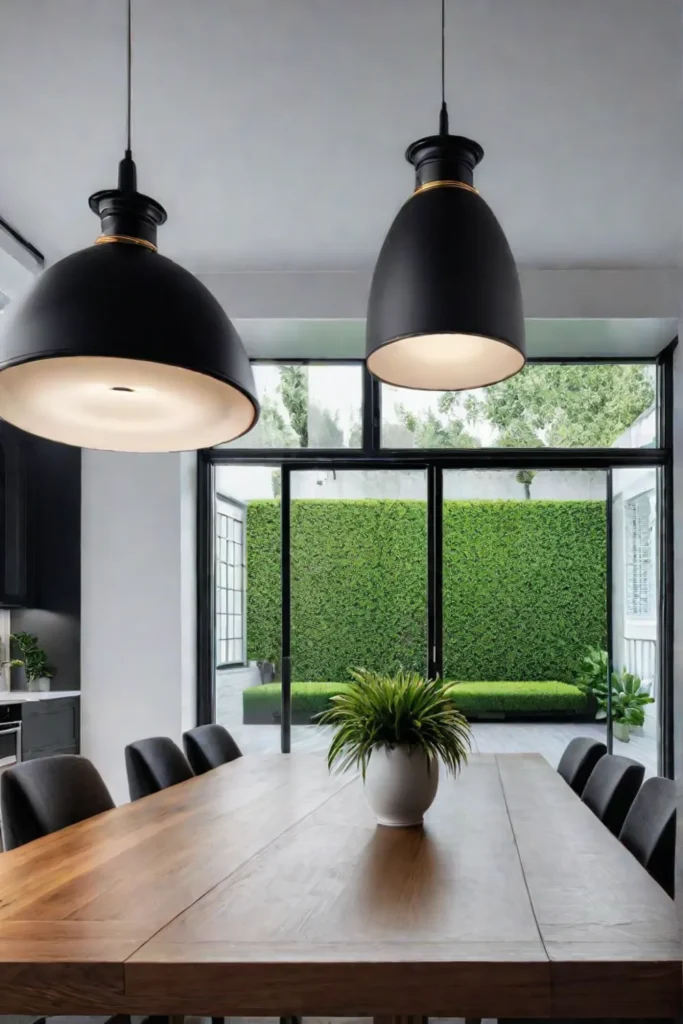
The growing trend of smart home technology drives the rise of smart kitchens. As more and more households embrace the convenience of connected devices, the demand for intelligent kitchen solutions has skyrocketed. In fact, according to a report by Grand View Research, the global smart kitchen market is expected to reach a staggering $5 billion by 2027, growing at a remarkable CAGR of 4% from 2020 to
Connecting the Kitchen: Integrating Smart Devices
The heart of a smart kitchen lies in its ability to seamlessly integrate various connected devices, creating a cohesive and user-friendly experience. These technologies, from smart refrigerators and ovens to voice assistants and mobile apps, work together to streamline your culinary routine.
Imagine preheating your oven remotely using your smartphone or setting a timer for your slow cooker with a simple voice command. Smart kitchen devices can even track your pantry inventory and suggest recipes based on what you have on hand, taking the guesswork out of meal planning.
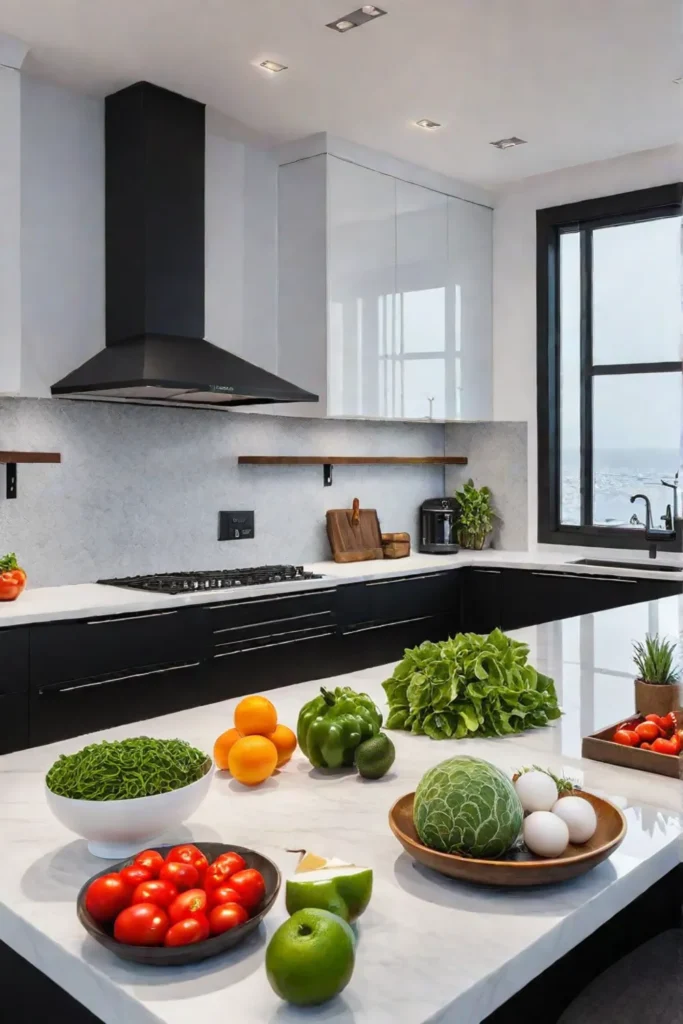
But the integration of smart devices in the kitchen goes beyond just cooking. Smart lighting, thermostats, and security systems can all be connected, allowing you to control the ambiance and monitor your home’s safety from a central hub. This integration level creates a seamless smart home experience, where the kitchen is just one piece of the puzzle.
Automation and Efficiency: Enhancing the Culinary Experience
Smart kitchen technologies aren’t just about convenience but also efficiency and sustainability. These intelligent systems can automate routine tasks, optimize energy usage, and even help reduce food waste, transforming how we approach cooking and meal preparation.
Take, for example, the smart refrigerator. These advanced appliances can track your food inventory, alert you when items are running low, and even suggest recipes based on what’s available. By automating these tasks, you can minimize food waste and ensure you always have the ingredients you need.
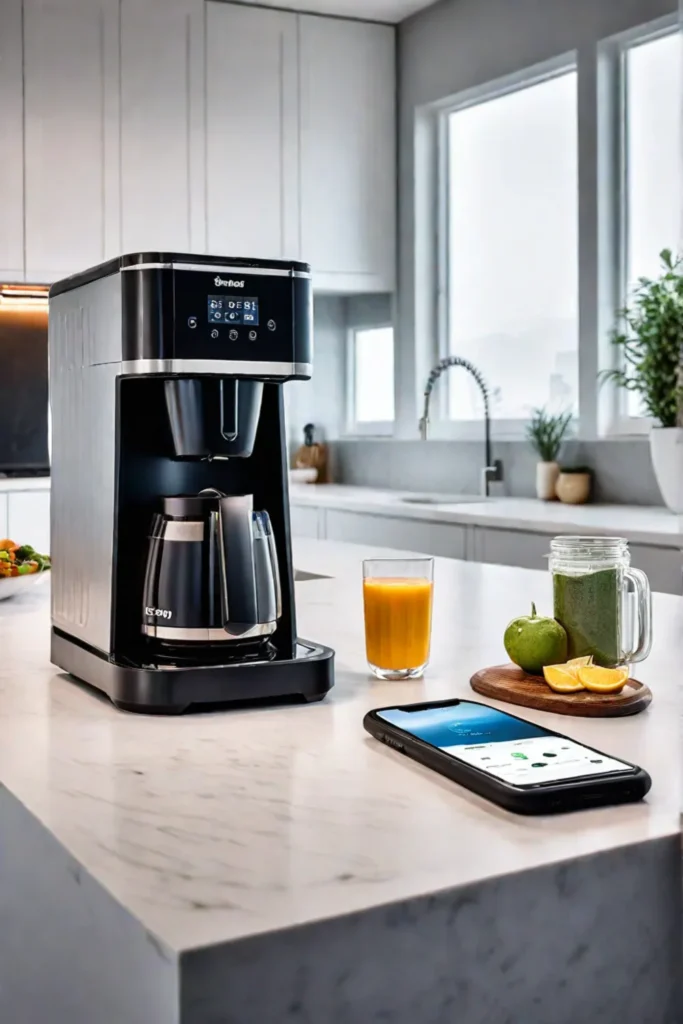
However, the efficiency of smart kitchens extends beyond just inventory management. Smart ovens and cooktops can adjust their settings to minimize energy consumption, while self-cleaning features can reduce the need for manual scrubbing, saving both time and water. With the rise of predictive maintenance, your smart kitchen appliances can even alert you to potential issues before they become major problems, helping to extend their lifespan and reduce repair costs.
Customization and Personalization: Tailoring the Kitchen to Your Needs
One of the most exciting aspects of smart kitchens is their ability to be customized and personalized to suit your unique needs and preferences. Gone are the days of one-size-fits-all appliances and settings – smart kitchen technologies allow you to create a truly bespoke cooking experience.
Imagine a smart oven that remembers your favorite baking temperature for that perfect loaf of bread or a voice assistant that can suggest recipes based on your dietary restrictions and taste preferences. These personalized features save you time and ensure that your culinary experience is tailored to your specific needs.
But the customization doesn’t stop there. Smart kitchen devices can also adapt to your habits and routines, learning your preferences and adjusting accordingly. A smart thermostat, for example, can know your ideal temperature for different times of the day and automatically adjust the climate in your kitchen to keep you comfortable.
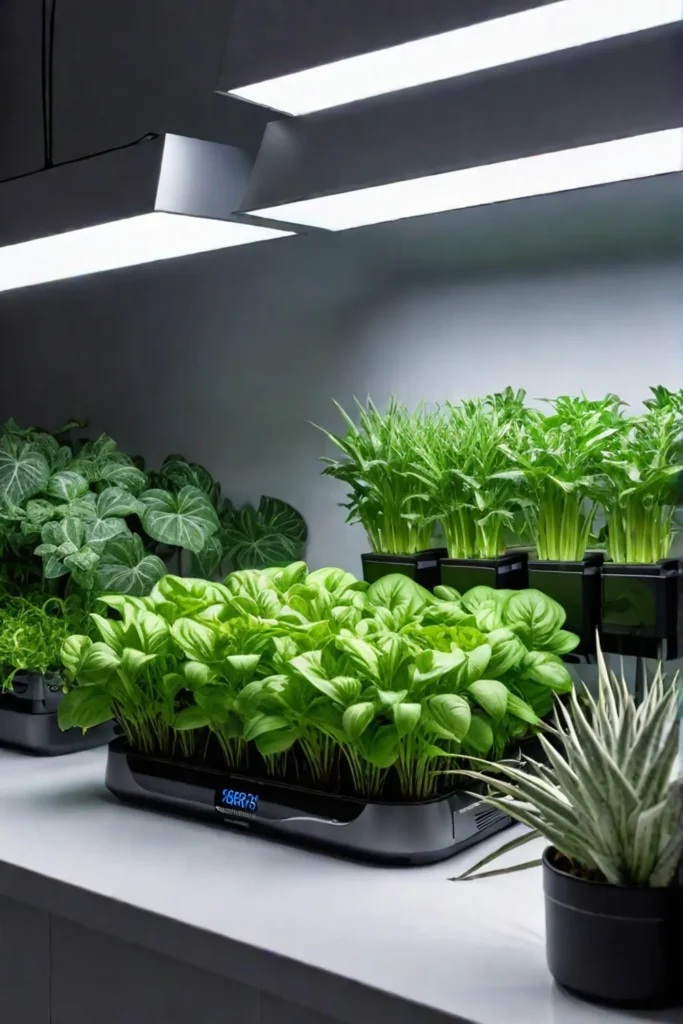
Of course, with this level of personalization comes the need to balance convenience with privacy concerns. As smart kitchen technologies collect and analyze user data, it’s essential to ensure your personal information is handled securely and ethically. You can enjoy a truly customized culinary experience without sacrificing your privacy by striking the right balance.
Seamless Integration: Connecting the Kitchen to the Broader Smart Home
Smart kitchens are not just about the appliances and devices within the cooking space but also about how those technologies integrate with the broader smart home ecosystem. Connecting your kitchen to other smart home systems creates a truly cohesive and connected living experience.
Imagine controlling your kitchen lights, security system, and climate control from a single, centralized hub. This level of integration allows you to monitor and manage your entire home with ease, whether in the kitchen, the living room, or even away from the house.
But the benefits of smart home integration go beyond convenience. Coordinating your kitchen appliances with other systems can enhance energy efficiency and safety. For example, your oven can be programmed to turn off automatically when your home security system is activated, giving you peace of mind that your kitchen is secure.
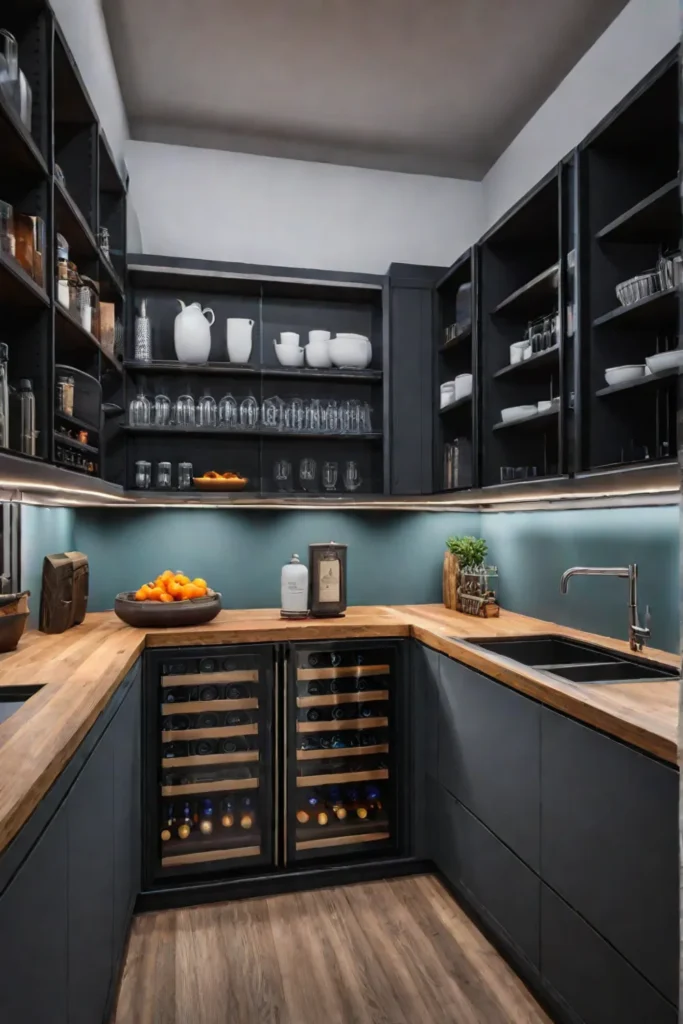
As the smart home market grows, we expect to see even more seamless integration between the kitchen and the rest of the house. This convergence of technologies promises to revolutionize how we interact with our living spaces, making our homes more efficient, convenient, and connected.
Design and Aesthetics: Balancing Technology and Style
While the functionality of smart kitchen technologies is undoubtedly impressive, it’s important to consider how these innovations will integrate with your cooking space’s overall design and aesthetics. After all, the kitchen is the heart of the home, and its visual appeal can significantly impact the overall feel of your living environment.
Fortunately, smart kitchen manufacturers have recognized the importance of design, and they’re creating appliances and devices that not only offer cutting-edge features but also complement the style of your kitchen. From sleek, minimalist cooktops to integrated smart displays that blend seamlessly with your cabinetry, the options for combining technology and aesthetics are endless.
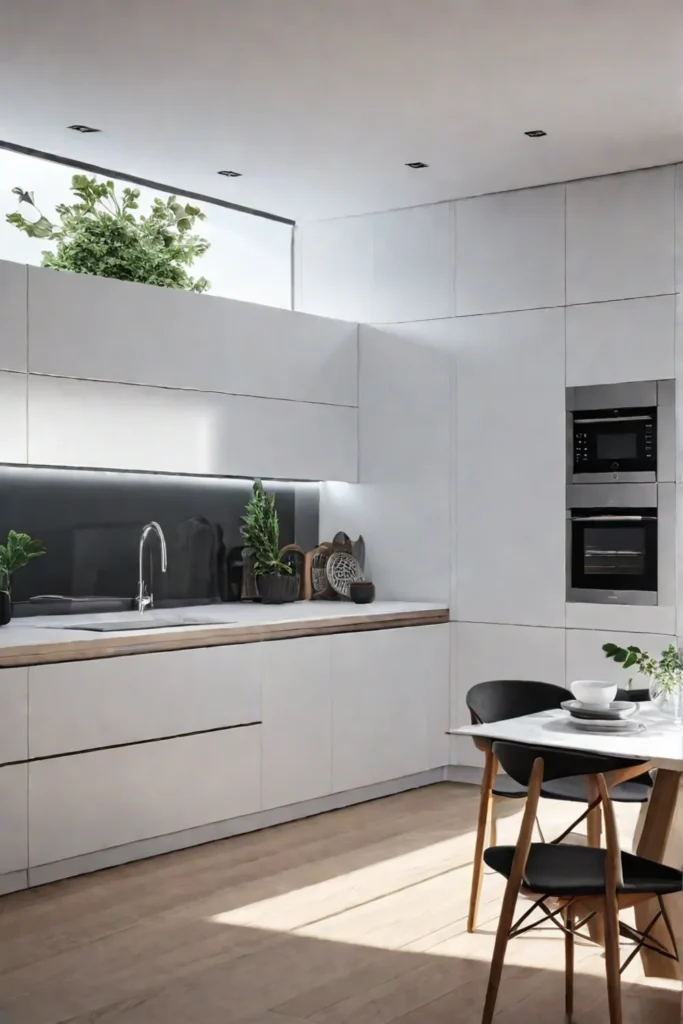
But it’s not just about the appliances themselves – how these smart technologies are integrated into the kitchen can also make a big difference. Discreet, hidden installations can help maintain a clean, uncluttered look, while strategically placed smart displays and controls can enhance the functionality of your cooking space without detracting from its visual appeal.
As you explore the world of smart kitchens, remember to keep design and aesthetics at the forefront of your mind. By striking the right balance between technology and style, you can create a cooking environment that is highly efficient and convenient and a true reflection of your personal design aesthetic.
Enhancing the Culinary Experience: Smart Kitchen Features and Applications
Smart kitchen technologies aren’t just about automating tasks and improving efficiency – they’re also about enhancing the overall culinary experience. From seamless recipe management to personalized meal planning, these innovative features can transform how you approach cooking and meal preparation.
Imagine having a voice assistant that can guide you through a complex recipe, providing step-by-step instructions and setting timers to ensure perfect results. Or picture a smart refrigerator that can suggest meal ideas based on the ingredients you have on hand, taking the guesswork out of dinner planning.
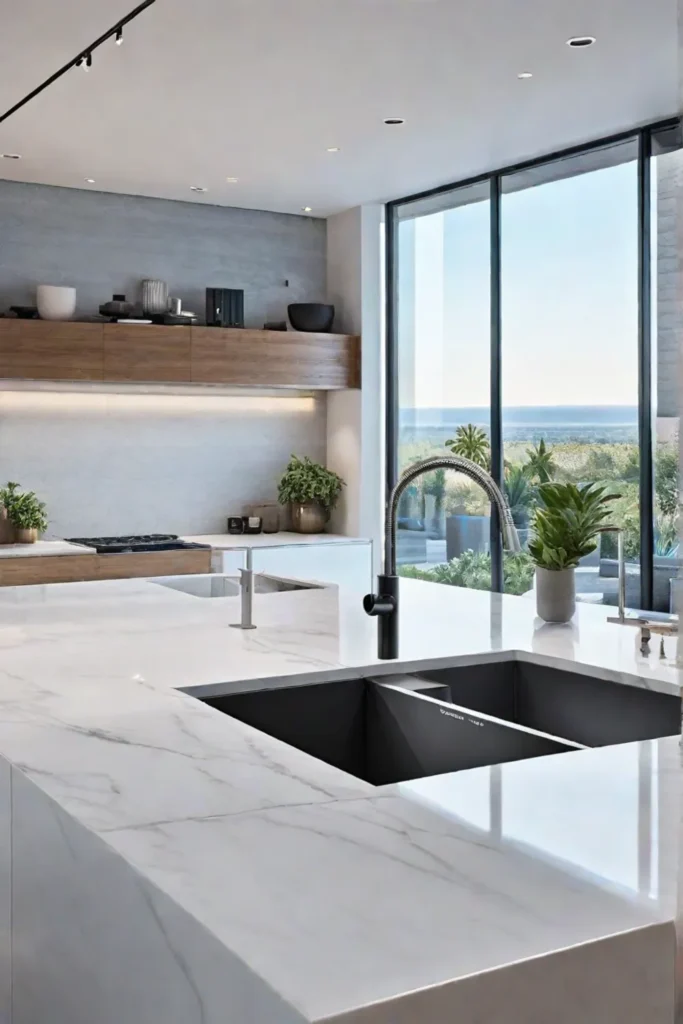
These smart kitchen features save you time and encourage you to explore new recipes and expand your culinary horizons. Smart kitchens can help even the most novice home chef feel like a seasoned pro by providing personalized recommendations and streamlining the cooking process.
Of course, for these features to be truly effective, they must be designed with user-friendliness and accessibility in mind. Smart kitchen technologies should seamlessly integrate with existing cooking routines, providing an intuitive and enjoyable experience for users of all skill levels.
The Future of Smart Kitchens: Trends and Emerging Technologies
As the smart kitchen market continues to evolve, we can expect to see even more innovative and transformative technologies emerge. From the rise of artificial intelligence (AI) to the integration of advanced robotics, the future of smart kitchens is exciting and thought-provoking.
Imagine a kitchen where an AI-powered assistant can suggest recipes based on your preferences and adjust cooking times and temperatures to ensure perfect results every time. Or picture a robotic sous chef who can handle the more tedious tasks, like chopping and mixing, freeing you up to focus on the creative aspects of meal preparation.
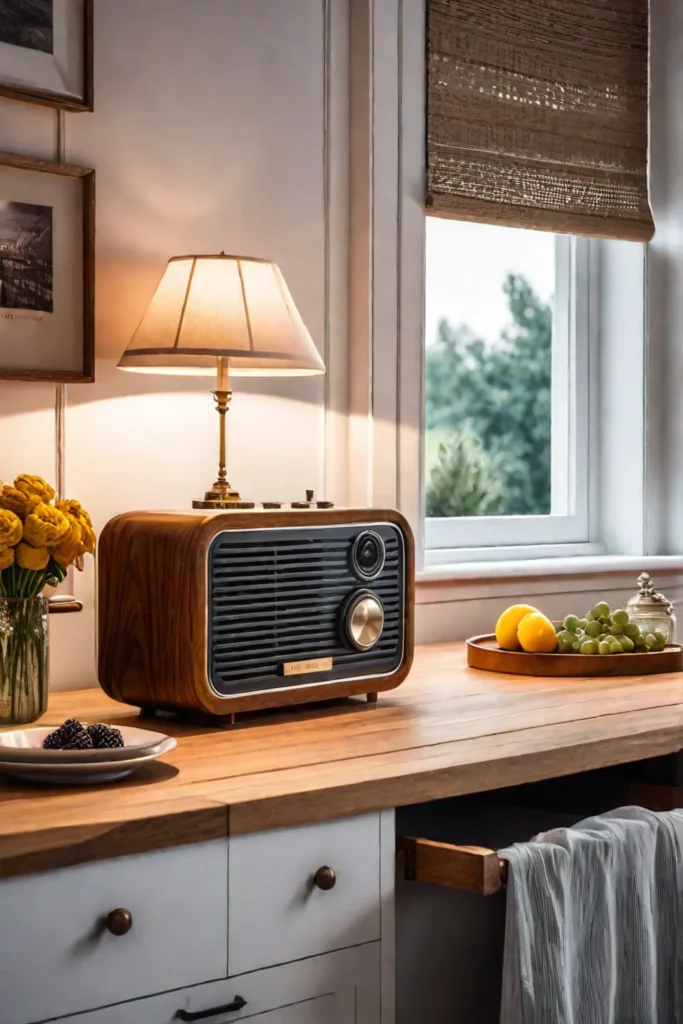
These advancements in AI and robotics can potentially revolutionize how we interact with our cooking spaces. However, they also raise important questions about the role of the human chef and the potential societal implications of highly automated kitchen environments.
As these technologies continue to evolve, it will be crucial to strike a balance between their convenience and efficiency and the preservation of the human touch in the culinary arts. By thoughtfully integrating these emerging trends, we can create smart kitchens that make our lives easier and enhance our overall relationship with food and cooking.
Conclusion
Smart kitchens are the future of culinary convenience, seamlessly blending cutting-edge technology with the art of home cooking. By integrating a wide range of smart devices and automation features, these intelligent spaces transform how we approach meal preparation, grocery shopping, and even home management.
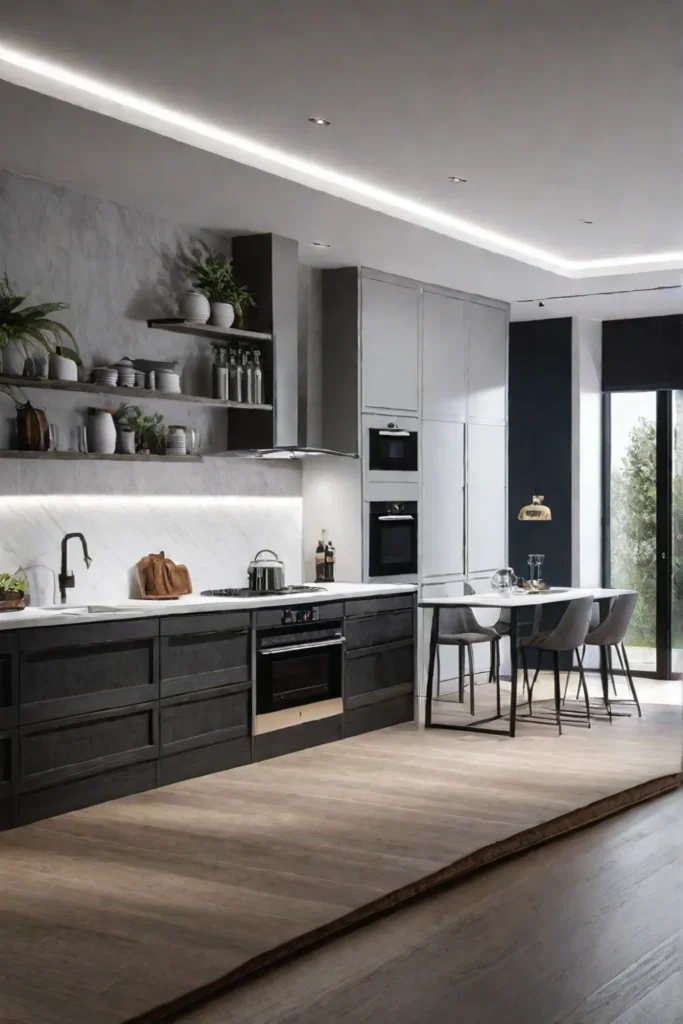
From automated task scheduling and energy-efficient appliances to personalized cooking experiences and seamless smart home integration, smart kitchens offer a wealth of benefits that cater to the needs of modern homeowners. As these technologies evolve, we can expect to see even more innovative and transformative solutions that will redefine how we interact with our cooking spaces.
So, whether you’re a seasoned home chef or a novice in the kitchen, the world of smart kitchens has something to offer. By embracing these cutting-edge technologies, you can create a culinary oasis that makes your life easier and reflects your personal style and design aesthetic. Get ready to experience the future of home cooking – the smart kitchen revolution is here, poised to change how we live and cook forever.
